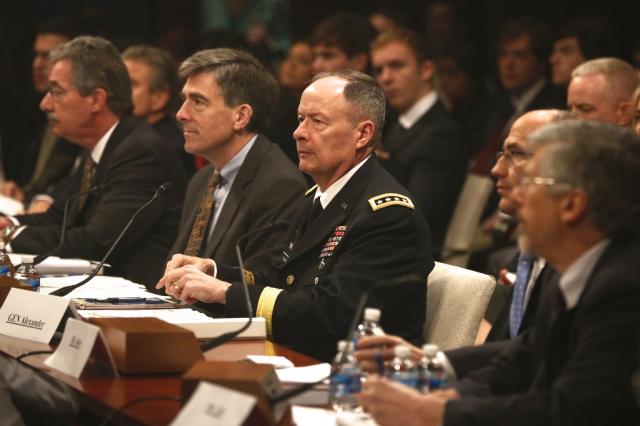
In the frenzy over Edward Snowden’s leak of classified information about government data-mining surveillance, public officials and pundits have tried to lock us into a narrowly defined and diversionary discussion that ignores the most important question we face about terrorism.
Their argument goes something like this: No one wants to die in a terrorist attack. This kind of spying is necessary to prevent terrorist attacks. So, stop whining about how information is being collected, used, and potentially misused—it’s better than dying.
Let me be clear: I do not want to die in a terrorist attack. But before I am bullied into accepting intrusive government surveillance that is open to politicized abuse, I have another question: Are there other ways we could reduce the risk of U.S. citizens, at home or abroad, being targeted by terrorists? Two possibilities come to mind.
First, stop creating new terrorists. Critics of the U.S. invasions of Afghanistan and Iraq have long argued that those destructive conflicts have deepened resentment against the United States. People in those countries who previously had no reason to attack U.S. military personnel or civilians are understandably unhappy with aggressive wars that destroy their homes and kill their people.

For example, in the new book and film “Dirty Wars,” reporter Jeremy Scahill and director Rick Rowley have documented how the U.S. Joint Special Operations Command—our so-called secret warriors—have indeed been killing terrorists, along with pregnant women, children, and lots of other non-combatants, deepening many people’s resentment of the United States. Much of the criticism has focused on the use of drones, not only in Afghanistan but also “secretly” in Pakistan, but Scahill and Rowley show how the whole strategy is misguided.
Second, let’s recognize that it is unlikely that the terrorism of Al Qaeda and others would have happened if not for nearly seven decades of a failed U.S. policy in the Middle East, Central Asia, and the Muslim world more generally. Since the United States filled the imperial void left by the weakening of Great Britain and France after World War II, our Middle East policy has been primarily aimed at maintaining a flow of oil and—just as important—a flow of oil profits that is advantageous to U.S. economic interests, especially as defined by elites.
That doesn’t mean that every single U.S. action in those regions has been evil, or that there has been a single clear policy in every moment. But we have routinely ignored the aspirations of the people of the Middle East in favor of “stability,” which doesn’t translate into stability for people but instead for the interests of those elites. Saddam Hussein was an ally or a monster depending not on the crimes he committed against his own people or threats he posed to other states, but on whether he was in line with U.S. policy. When he killed Iraqi Kurds (about whom U.S. policymakers don’t care much) and Iranians (an official U.S. enemy), that was okay. When he threatened Saudi Arabia (an official U.S. ally, despite that country’s history of human right abuses), we had to destroy him.
People in the Arab and Muslim world pay attention. I may disagree with the politics and theology of many of those who critique U.S. policy, but I can’t argue when they point out U.S. mendacity and hypocrisy.
Please read the full article here: http://www.occupy.com/article/terror-vs-surveillance-keeping-americans-safe-two-simple-steps
No comments:
Post a Comment